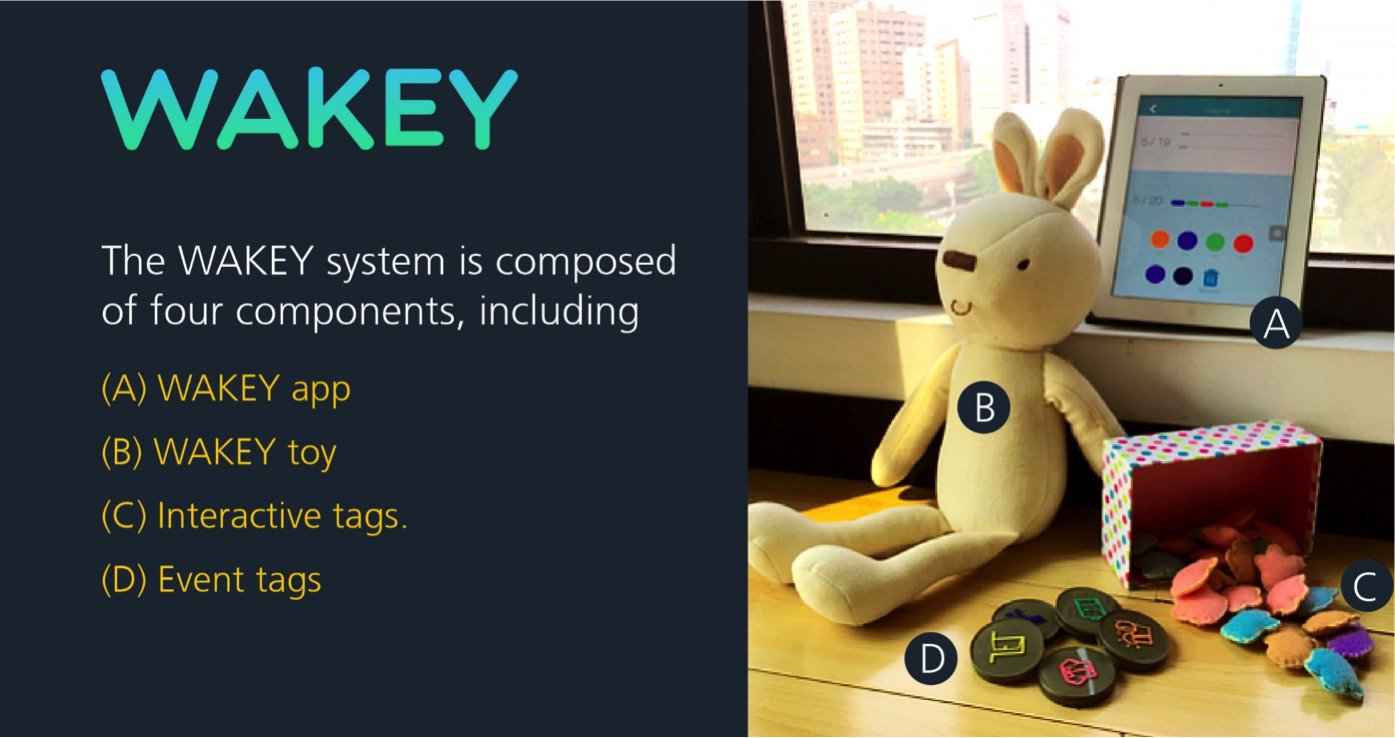Parent-child communication is an essential element in behavioral and character development in early childhood; however, parents may find it difficult to be aware of how they talk to their children. Through extensive field studies with experts and parents, we found that parents are more likely to experience communication conflict with preschool children (3-6 years old) on school mornings. In consultation with domain professionals and families, we designed WAKEY, a technology-based approach that helps parents use better communication strategies to teach preschool children to carry out their morning routines. Following the intervention with WAKEY, parents reported significantly reduced levels of frustration during morning routines and greater independent behavior by children. Furthermore, parents reported experiencing changes in their parenting attitudes and finding new insights into communication.

the WAKEY system is composed of four main components and is designed to interact with two kinds of users, parents and children. The parents’ section consists of two primary functions: real-time interaction and scheduling. The real-time interaction function enables parents to use the WAKEY toy to communicate and interact with their children, while the scheduling function can be used to set up event tags to be triggered and the time at which a task is completed to be recorded. In addition, the system also recommends positive phrases that parents can program the WAKEY toy to transmit. The children’s section contains two types of tags that interact with the WAKEY toy: event tags and interactive tags. Event tags relate to morning tasks, such as getting up, getting dressed, and eating breakfast. Children choose the appropriate event tag in the form of a “cookie” that can be “fed” to the WAKEY toy. This triggers the toy and makes it execute the actions programmed by the parents (e.g. singing or talking). Interactive tags are set up to trigger in response to certain actions, and parents can use these tags to incentivize children to interact with the WAKEY toy independently. Besides, a key important concept in this design is that it does not use a complex system to track or check what children have done but gives them time to decide what to do. Furthermore, RFID tags do not have to be scattered throughout the house; the five event RFID tags described in this study were already given to the children in advance.
@inproceedings{chan:CSCW2017,
title={WAKEY: Assisting Parent-child Communication for Better Morning Routines},
author={Chan, Meng-Ying and Lin, Yi-Hsuan and Lin, Long-Fei and Lin, Ting-Wei and Hsu, Wei-Che and Chang, Chia-yu and Liu, Rui and Chang, Ko-Yu and Lin, Min-hua and Hsu, Jane Yung-jen},
booktitle={Proceedings of the 2017 ACM Conference on Computer Supported Cooperative Work and Social Computing},
pages={2287--2299},
year={2017},
organization={ACM}
}
 Intelligent Agents Lab
Intelligent Agents Lab